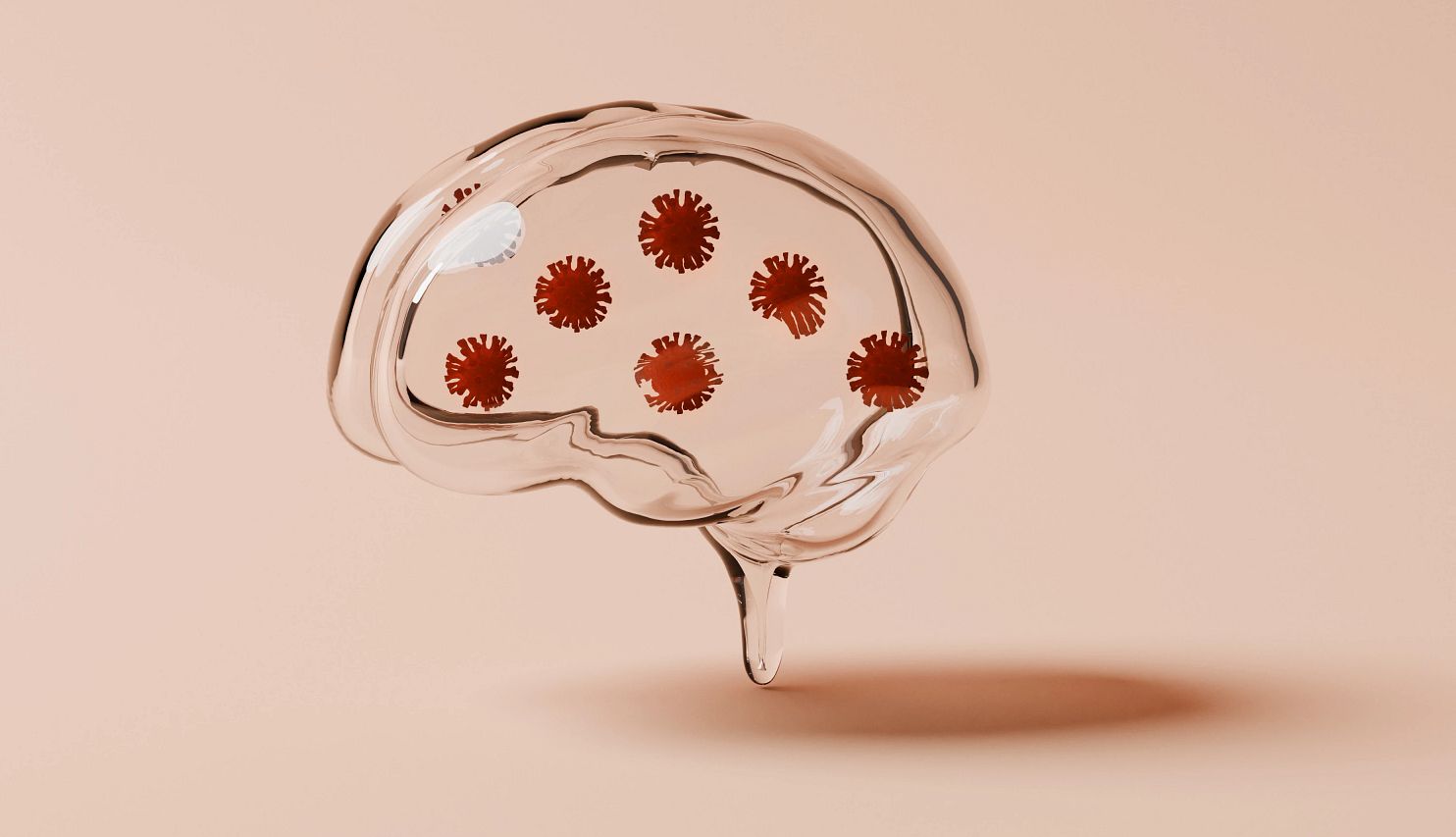
Can a common virus trigger alzheimer's disease?
- Select a language for the TTS:
- UK English Female
- UK English Male
- US English Female
- US English Male
- Australian Female
- Australian Male
- Language selected: (auto detect) - EN
Play all audios:

MORE VIRUSES AND OTHER MICROBES MAY BE INVOLVED While most work on viruses and dementia has focused on HSV-1, scientists suspect this pathogen is not the only instigator. Studies have
suggested ties with other herpesviruses, such as HSV-2, which can cause genital herpes, and cytomegalovirus, which can lead to mononucleosis, sometimes called the “kissing disease.” Even
bacteria that cause Lyme disease and gum disease are under investigation. A connection between a virus and neurological disease isn’t unheard of. Epstein-Barr virus, another herpesvirus that
causes mono, has been linked to later development of multiple sclerosis, in which the body’s immune system attacks the protective covering of nerve cells in the brain and spinal cord. But
not everyone infected with HSV-1 will develop Alzheimer’s disease, which has made the hypothesis difficult for many researchers to accept, Fülöp says. Most people carry the common virus, but
only about 11 percent of people 65 and older have Alzheimer’s disease. Even the minority who develop cold sores from HSV-1 are not automatically destined for a future with this form of
dementia, Shemesh says. “We all have [pathogens] in our brains, or some subsets of them,” he says. “So why [does] one person get Alzheimer’s and another person get nothing?” The difference,
he suspects, is “how our immune systems, in the brain and outside the brain, react to the viruses.” MAYBE AN ENVIRONMENTAL TRIGGER Still, many researchers doubt that a virus can cause
Alzheimer’s disease. Instead, a pathogen may contribute to developing the disease by exposing other weaknesses rooted in genetics, such as an immune system unable to properly do its job or
that puts up too many defenses, says neurologist Lennart Mucke, M.D., director of the Gladstone Institute of Neurological Disease in San Francisco. “If an abnormal immune system … is the
risk factor for Alzheimer’s disease, the infection allows the abnormal immunity to play out because it challenges the immune system,” he says. Rather than being a key driver of Alzheimer’s
disease, pathogens may act as “environmental triggers that interact with many genetic risk factors and bring those out.” Although Mucke questions the virus hypothesis, he’s eager to see the
results of a clinical trial investigating whether an antiviral drug, which stops an existing infection, can slow disease progression in people with mild Alzheimer’s disease and HSV-1 or
HSV-2. The study was completed in September 2024, and researchers plan to report the results in a few months. “There’s enough evidence of associations here that it is worth putting this to
the test,” Mucke says. “When there are promising or potentially interesting links, they certainly deserve to be tested in well-controlled trials.” Regardless of the trial’s outcome,
researchers who spoke to AARP agree that vaccines may help stave off Alzheimer’s disease in some capacity. “The most powerful prevention that we can really advise … [is] to be vaccinated for
not only viruses, but any vaccine-preventable disease,” Fülöp says.
